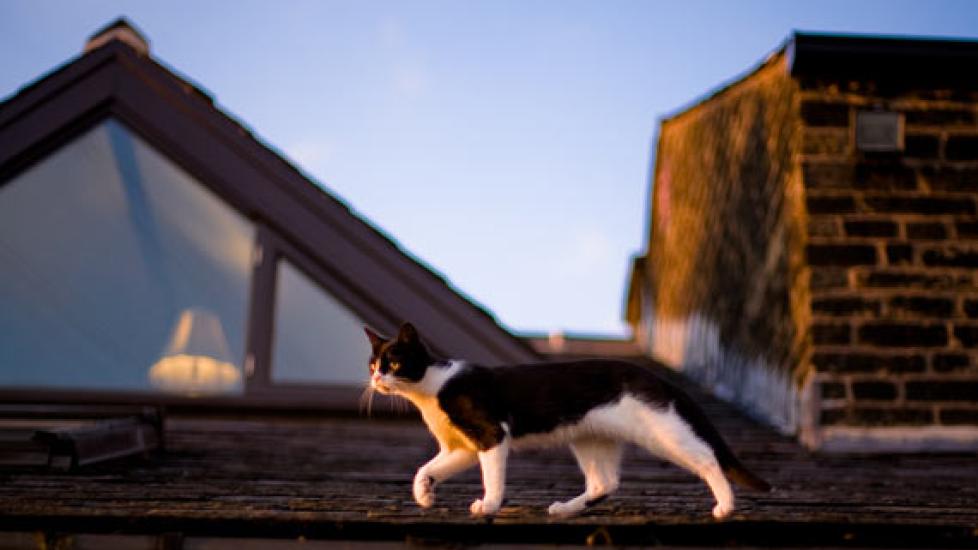What Does Your Cat Do When He’s Outside?
Recently, University of Georgia researcher Kerrie Ann Loyd fitted a number of cats with cat cams—a small video recorder attached to the collar. Loyd’s purpose was to see what cats do when they are outdoors. The results may surprise you if you believe your cat is relatively safe outdoors.
Loyd’s research concluded that the cats she studied engaged in risky behaviors at least once weekly on average. The risky behaviors included coming into contact with opossums and other wild animals, carousing on rooftops and slinking through sewers. Cats were also observed chasing chickens belonging to neighbors and hunting other prey.
A somewhat humorous discovery was that of a cat that actually had two families caring for him, both totally unaware of the other. One of his human "moms" remarked that she felt like the cat was cheating on her when she saw the video footage of the cat being welcomed into the home of another family. If you can make work it for you, why not go for it, right? Who can blame the cat for looking for extra attention and extra meals?
On a more serious note though, some of these behaviors truly are very risky. Contact with wild animals opens the door for rabies, a disease thats we see more commonly in cats than we do in dogs, probably because of this propensity to interact with wildlife.
I’ve personally seen barn cats sharing their food dish with raccoons and opossums. I have also been told that these same cats sometimes share their food dishes with skunks as well, although I’ve never witnessed the skunks sharing a meal with the cats myself. These particular cats are vaccinated against rabies; I know this because I vaccinated them myself. But I have to wonder how many of the other cats that go outdoors are vaccinated. In theory they all should be, but we don’t live in a perfect world and a large percentage of cats are, unfortunately, unvaccinated.
What happens to an unvaccinated animal that is exposed to rabies—or even suspected of exposure? It is often recommended that the animal be euthanized. A second alternative is quarantine for as long as six months. This quarantine may be required to take place in an approved facility such as a local pound.
Just in case you think it can’t happen to you, let me share a story. This story involves a dog but it could just as easily have been a cat.
The dog had not been vaccinated in quite some time and was not up-to-date on his vaccine. He got into a fight with another dog that ran off after the fight and could no longer be located. Because this dog was unvaccinated and the second dog could not be found to verify its rabies status, he was seized by the animal control officer and placed in quarantine despite his owner’s tearful pleas not to take her dog. This is a true story, one that I personally witnessed. I don’t blame the animal control officer; she was only doing her job. It was disturbing for everyone involved and could have been avoided had the dog been vaccinated. It probably also could have been avoided if the dog had not been running loose.
Granted, that story involves a dog, but similar situations can and do occur with cats. Indoor cats still need to be vaccinated, and identification is still a good idea too. But even so, these situations are much less likely to arise if a cat lives indoors.
If that’s not enough, there’s also the risk of exposure to contagious diseases for cats that spend time outdoors. Diseases like feline leukemia and feline AIDS are not at all uncommon in outside cats.
Other concerns include the risk of injury while traversing a rooftop and exposure to disease and injury in a sewage system. And those chickens that some cats were seen chasing likely have owners who probably don’t appreciate having their chickens chased or injured. At best, it can’t result in a happy relationship with your neighbor. At worst, a neighbor might decide to take revenge on a cat that regularly terrorizes his livestock.
What do you think? Do you let your cats go outdoors? Do you worry about the risk if you do?

Dr. Lorie Huston
Image: Cat on a hot slate roof by Matthew / Flickr
Last reviewed on September 16, 2015
